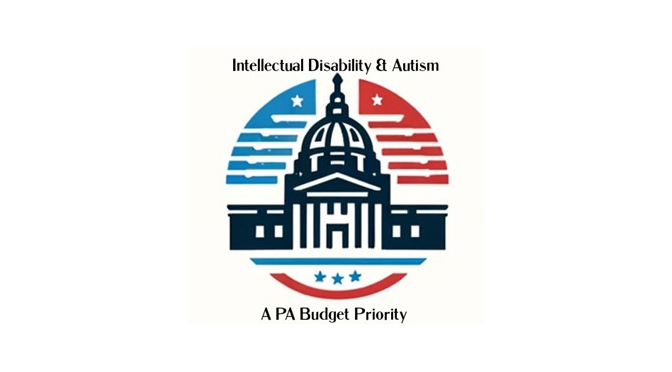 By Gary Blumenthal, former member of the Kansas House of Representatives and federal disability official in the Clinton and Obama Administrations, currently vice president for Government Affairs/Advocacy for InVision Human Services, headquartered in Wexford, PA and Reading, PA
By Gary Blumenthal, former member of the Kansas House of Representatives and federal disability official in the Clinton and Obama Administrations, currently vice president for Government Affairs/Advocacy for InVision Human Services, headquartered in Wexford, PA and Reading, PA
If you are in the ID/A community – a person with a disability, a family member, or an advocate on behalf of someone with intellectual disabilities or autism (ID/A) – you understand one undeniable truth: there are no days off.
Every day brings the worry of whether the vital supports and services your loved ones need to live in their communities will be there tomorrow. Will the direct support professionals (DSPs) be present, skilled, and ready to help? Will residential, employment, and healthcare services continue uninterrupted? These are not hypothetical concerns—they are the lived reality for thousands of families across PA.
For over two decades, the ID/A community has faced an uphill battle, holding its collective breath each year to see if legislators and the governor would make their needs a priority in the state budget. Families have had to lay bare the most personal aspects of their lives to lawmakers, the press, and the public to demonstrate the dire nature of PA’s human services system. Every year, they face the excruciating uncertainty of whether their local programs will receive the funding necessary to provide the services their loved ones are qualified and eligible to receive.
The struggle to recruit, train, and retain DSPs—those essential workers who provide direct care to people with ID/A—is a daily challenge. Despite their training and professional status, DSPs are often paid wages comparable to entry-level workers, leading to staggering turnover rates. More than a third of DSPs leave within their first year, driven away by the difficulty of the work and inadequate pay. This workforce crisis puts the well-being of the ID/A community at risk every day.
However, the tide has begun to turn. In recent years, the ID/A community has found its voice. Through advocacy and persistence, the community has become a more vocal force, demanding public and government attention to the critical needs of individuals with ID/A.
In the last legislative session, the ID/A community’s advocacy finally paid off. Governor Josh Shapiro and the General Assembly responded. After years of stagnant funding or inadequate increases, the Governor made the ID/A community a priority in his February 2024 budget address, recommending a historic $483 million increase to stabilize rates for ID/A programs. This recommendation came after a thorough rate analysis to determine the funding necessary to pay DSPs fair wages and begin addressing the state’s 6,000-person waiting list for home and community-based services.
The response from the General Assembly was promising, but not without its setbacks. While Governor Shapiro’s bold recommendation was supported by both parties, the final appropriation reduced the requested funding by $93 million (state general funds). This shortfall hampers the state’s ability to meet the ambitious goals of reducing DSP turnover rates and eliminating the waiting list for essential services. Yet, the $390 million increase that was approved remains a significant step forward—one of the largest in the history of Pennsylvania’s ID/A funding.
But this is not the time to rest. The challenges facing the ID/A community are far too deep and longstanding to be solved in a single budget cycle. The progress made last year was substantial, but it is only the beginning. As the 2025/26 fiscal year budget discussions loom, it is imperative that the General Assembly and Governor Shapiro continue their commitment to fully fund the critical supports the ID/A community needs.
The Governor’s leadership in making the ID/A community a priority has been commendable. His willingness to engage with families and providers shows that he understands the gravity of the situation. Yet, the $93 million gap from last year’s budget remains an obstacle, and it is essential that it be addressed in the forthcoming budget.
The ID/A community must remain vigilant. This is not a one-year fight. It is a fight that must be waged every year, with relentless advocacy and unyielding resolve. The ID/A community must continue to ensure that its voice is heard loud and clear by the Governor and the General Assembly. The future of thousands of Pennsylvanians depends on it.
Only through sustained effort can we ensure that the progress made last year is just the beginning of a new era of stability and dignity for people with ID/A in Pennsylvania.



